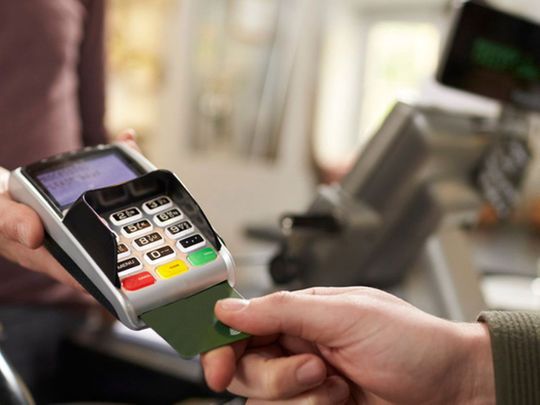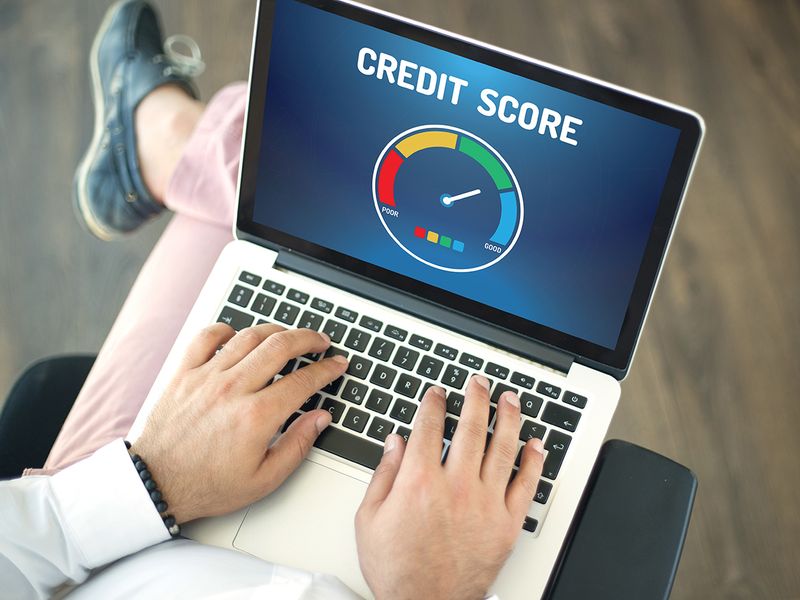
Dubai: Some card issuers offer the option of paying dues in EMIs (equated monthly instalments) on selected purchases or your total outstanding bill amount. Some banks may even call you soon after a large transaction offering the EMI option. But is it prudent to do it often or is it a credit trap?
Also, how does it work? A credit card instalment is a payment plan where you make monthly payments toward purchases you've made. Instead of making a complete, one-time cash payment on your credit card, you pay for your purchases in equal amounts over a specific number of months.
“When you sign up for a credit card instalment plan, the total purchase amount is automatically deducted from your available credit,” explained Essam Kabeelali, a UAE-based consumer credit advisor. “Your monthly instalment amount is included in the minimum amount due each month.
“As you pay off the balance, the amount you pay is then added back to your credit limit. Such plans are useful if you're making a purchase and need more time to pay off your balance. Over time, the set plan fees can save you money compared to paying off a credit card balance with interest rates.”
Are credit card instalment plans easy-to-manage?
You can set up one easy-to-manage instalment plan for up to five transactions. You can also set up an instalment plan to help pay down a balance transfer between credit cards. Such instalment plans let you choose between 12, 18, 24, 36 or 48 EMIs, which will be included in your card statement.
“As you will be paying a good amount as interest alone until the entire bill is settled, this is quite a pricey option. In fact some banks and credit card providers impose a rate as high as 36 per cent on outstanding credit card amounts,” explained Rupesh Naish, a Dubai-based debt advisor.
“Conversion of your credit card outstanding dues to EMIs is a stress-free and more suitable option if you are worried about not meeting the payment deadline. This method is not very old and is already quite popular among credit card users.”
Also, an added advantage is that credit card dues to EMI conversion does not require any formal application or long paperwork, so you simply have to get in touch with your bank or credit card firm via email or in person and request for the option.
When you sign up for a credit card instalment plan, the total purchase amount is automatically deducted from your available credit
When do you use the credit card instalment option?
“What you must bear in mind is an often-overlooked fact that the credit limit on your credit card will go down to the extent of the EMI and you can use only the limit left over. Also, the EMIs have to be paid in time as late payments can attract quite high rates,” added Kabeelali.
“This is why this option is recommended only for high end purchases like electronic items, fixtures, furniture, gadgets, vacation packages and so on. Another disadvantage is that if you are shopping on EMI, you might not get the rebate that is given to those willing to make the complete payment.”
But with this option the most important question is whether or not you will be incurred a charge for it? “If you choose to pay your credit card dues by EMI, the processing fee will be a percentage of the amount that is being converted into an EMI,” Naish further explained.
“This will be a nominal amount depending on the total amount that will be converted into an EMI. However, if you are being given a zero interest EMI offer, there is an exception to this as there most likely won't be any processing fees in that scenario.”

How do you find out if you’re eligible for credit card plans?
To be eligible for EMI on a credit card payment, your credit limit should be enough to cover the total amount that you want to convert into an EMI, Kabeelali explained. “If your credit limit is less than this amount, then it cannot be converted into an EMI and your request will be declined.
“If you are found to be not eligible, the obvious reason is that you do not have enough credit limit. Also, the retailer could decline the EMI option on the card if you do not meet the criteria such as their credit score cut-offs or if the merchant does not have a tie-up with your credit card issuer.”
However, Kabeelali cautioned that some card issuers may run a check on your credit profile before approving the EMI option on purchases. “The interest rates and processing fees for EMI conversion, in such cases, is adjusted against the prices fixed by the merchant,” he added.
“The next worry would be whether or not your credit score is negatively impacted if you choose to convert your outstanding dues into EMIs. Know that it doesn’t. Just ensure your credit card dues are paid off on time every month, as this helps to improve or maintain your credit score in the long run.”
If you are found to be not eligible, the obvious reason is that you do not have enough credit limit for your purchase
Key takeaways
Converting your credit transactions into an EMI allows you to make big purchases without financially overburdening yourselves. It also makes repaying the debt convenient as EMIs are easier to repay than a one-time bill payment. You also eliminate the risk of making late payments and penalties too.
So should you opt for converting your credit card purchases into instalments? The short answer is that it depends on whether or not your credit card issuer allows the EMI option and what offers are made available on such options.
“Ideally, while it helps to know that interest rates on EMI payments are much lower than regular credit card interest rates. This makes EMI payments manageable. But that’s not all. Some of the best credit cards come with the option of zero-cost EMI for certain products,” added Naish.
“This means even lower EMIs since you only pay for the product price. However, even if the interest payments are low, you may pay more in additional charges. So review the additional charges applied by each bank before getting a credit card.”
The bottom line is while converting transactions into EMI is a convenient option if you use credit cards, and often turns out to be cost-effective for making big-ticket purchases without constraining your finances, consider the above challenges of converting purchases into instalments when you do.









